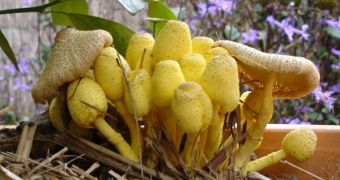Ecologists and biologists, working on models aimed at predicting the effects of global warming on the northern regions of the globe, in Alaska, Canada, Scandinavia and Siberia, stumbled upon an interesting fact. They noticed that warmer mushrooms, or fungi, do not emit more carbon dioxide in the atmosphere, as expected, but rather they "shut down" and stop taking carbon from the soil.
This discovery could provide lawmakers worldwide with more time to come up with a viable global plan of counteracting global warming, seeing how the Kyoto Protocol is due to expire soon and no other international law is yet ready to take its place. Considering the large surfaces on higher latitudes that are covered in forests, this new find shows how little scientists actually know about our planet.
It appears that the way fungi behave is a part of a natural cycle that Earth employs to prevent "overheating," much like oceans absorb excess carbon from the atmosphere and then store it under the waves. Tropical storms, typhoons and hurricanes, also help the environment get rid of the pollution in the atmosphere, by trapping carbon in the air and from the ground and directing it to riverbeds, where it heads for the oceans.
"It's fortuitous for humans that the fungi are negatively affected by this warming. It's not so great for the fungi, but might help offset a little bit of the carbon dioxide we are putting directly into the atmosphere by burning fossil fuels," explained University of California associate professor of ecology and evolutionary biology Kathleen Treseder.
"We don't get a vicious cycle of warming in dry, boreal forests. Instead, we get the reverse, where warming actually prevents further warming from occurring," added lead author of the study, Steven Allison, who is also an ecology and evolutionary biology assistant professor at UC, in regard to the weird behavior the mushrooms exhibited when subjected to heat.

 14 DAY TRIAL //
14 DAY TRIAL //